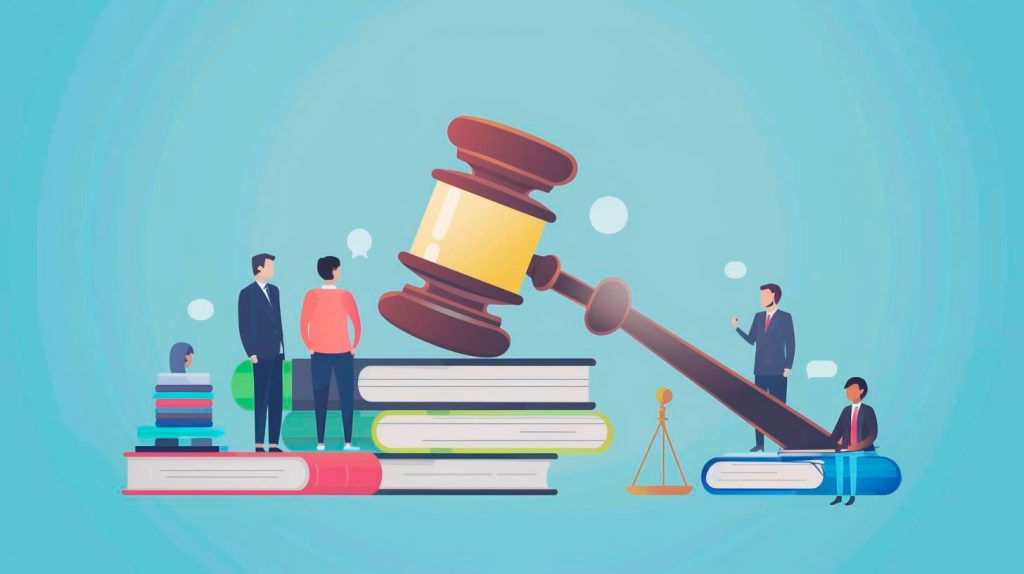
Ensuring Continued Eligibility for Welfare Benefits: A Legal Perspective
In this blog post, we will outline the steps you can take to ensure that you remain eligible for welfare benefits and avoid any potential pitfalls along the way.
Know the Eligibility Requirements
One of the most important steps you can take to ensure continued eligibility for welfare benefits is to familiarize yourself with the eligibility requirements set forth by the government. These requirements may vary depending on the type of benefit you are receiving, so it is crucial that you understand what is expected of you in order to continue receiving assistance.
For example, in order to qualify for Temporary Assistance for Needy Families (TANF), you must meet certain income and resource limits, as well as participate in work-related activities. Failure to comply with these requirements could result in the termination of your benefits.
Report Changes in Circumstances Promptly
Another important step you can take to ensure continued eligibility for welfare benefits is to report any changes in your circumstances promptly. This includes changes in income, household composition, or employment status. Failing to report these changes in a timely manner could result in an overpayment of benefits, which you may be required to repay.
By keeping your caseworker informed of any changes in your circumstances, you can help ensure that your benefits are adjusted accordingly and that you remain in compliance with program requirements.
Comply with Program Rules and Regulations
In addition to meeting eligibility requirements and reporting changes in circumstances, it is essential that you comply with all program rules and regulations in order to maintain your eligibility for welfare benefits. This includes attending any required appointments, completing any mandatory paperwork, and participating in any required activities.
Failure to comply with program rules and regulations could result in the suspension or termination of your benefits, so it is crucial that you adhere to all requirements set forth by the program in which you are enrolled.
Understand Your Rights and Responsibilities
As a recipient of welfare benefits, it is important to understand your rights and responsibilities in order to advocate for yourself and ensure that you are treated fairly. This includes knowing how to appeal a decision if you believe you have been wrongfully denied benefits or if your benefits have been terminated.
By understanding your rights and responsibilities, you can protect yourself from potential pitfalls and ensure that you receive the assistance to which you are entitled.
Seek Legal Assistance if Needed
If you are facing challenges in maintaining your eligibility for welfare benefits, it may be beneficial to seek legal assistance from an experienced attorney. A lawyer who specializes in welfare benefits can help you navigate the complex rules and regulations governing these programs and advocate on your behalf if you encounter any issues.
Legal assistance can be especially helpful if you are facing a denial of benefits, a termination of benefits, or an overpayment situation. An attorney can help you understand your rights, appeal any adverse decisions, and ensure that you receive the assistance you need to support yourself and your family.
Ensuring continued eligibility for welfare benefits can be a complex and challenging process, but by following the steps outlined in this blog post, you can help protect your benefits and avoid any potential pitfalls along the way. By knowing the eligibility requirements, reporting changes promptly, complying with program rules, understanding your rights and responsibilities, and seeking legal assistance if needed, you can ensure that you continue to receive the assistance you need to support yourself and your family.
Remember, welfare benefits are intended to provide a safety net for those in need, and by taking proactive steps to maintain your eligibility, you can ensure that you continue to receive the support you need during difficult times.
Understanding the Impact of Bankruptcy on Welfare Eligibility
What is Bankruptcy?
Bankruptcy is a legal process that allows individuals and businesses to eliminate or repay their debts under the protection of the federal bankruptcy court. There are several types of bankruptcy, including Chapter 7 and Chapter 13, each with its own set of rules and requirements.
Chapter 7 bankruptcy, also known as liquidation bankruptcy, involves the sale of a debtor’s non-exempt assets to pay off their creditors. On the other hand, Chapter 13 bankruptcy, known as reorganization bankruptcy, allows debtors to create a repayment plan to pay off their debts over a period of three to five years.
Impact of Bankruptcy on Welfare Eligibility
One of the main concerns for individuals considering bankruptcy is how it will affect their eligibility for government welfare programs, such as Medicaid, Supplemental Nutrition Assistance Program (SNAP), and Temporary Assistance for Needy Families (TANF).
While bankruptcy itself does not disqualify someone from receiving welfare benefits, it can impact their eligibility in certain ways. For example, in some states, assets that are exempt from bankruptcy proceedings may still be considered when determining eligibility for welfare programs.
Additionally, individuals who file for bankruptcy may be subject to income limits or other eligibility requirements that could affect their ability to qualify for welfare benefits. It is important for individuals considering bankruptcy to familiarize themselves with the rules and regulations of the welfare programs in their state to understand how bankruptcy may impact their eligibility.
Steps to Navigate the Impact
For individuals who are considering bankruptcy and are concerned about how it may affect their eligibility for welfare programs, there are steps that can be taken to navigate this complex situation:
- Consult with a bankruptcy attorney: A bankruptcy attorney can provide valuable guidance on how to protect assets and navigate the bankruptcy process while minimizing the impact on welfare eligibility.
- Understand state-specific rules: Welfare eligibility rules vary by state, so it is important to familiarize yourself with the regulations in your specific state to ensure you meet all requirements.
- Seek assistance from a financial counselor: A financial counselor can help you create a budget and financial plan to ensure you meet the eligibility requirements for welfare programs after filing for bankruptcy.
Bankruptcy can have a significant impact on an individual’s eligibility for welfare programs, but with careful planning and guidance from legal and financial professionals, it is possible to navigate this challenging situation. By understanding the rules and regulations of both bankruptcy and welfare programs, individuals can take steps to protect their assets and ensure they meet all eligibility requirements for government assistance.
It is important for individuals considering bankruptcy to educate themselves on the potential impact on welfare eligibility and seek assistance from experienced professionals to help them through the process.
Factors That Affect Your Ability to Receive Welfare Benefits After Bankruptcy
Welfare benefits are designed to provide financial assistance to those in need, but there are certain factors that can impact your eligibility after bankruptcy. In this article, we will explore the factors that can affect your ability to receive welfare benefits after filing for bankruptcy.
Income Level
One of the main factors that can affect your eligibility for welfare benefits after bankruptcy is your income level. Welfare programs have income limits that determine who is eligible to receive benefits. If your income level is above the threshold set by the program, you may not qualify for benefits. This is particularly true for Chapter 7 bankruptcy, where your assets are liquidated to pay off your debts. In contrast, Chapter 13 bankruptcy allows you to keep your assets and create a repayment plan, which may have less of an impact on your income level.
Assets and Property
Another factor that can affect your ability to receive welfare benefits after bankruptcy is your assets and property. Welfare programs often have asset limits that determine eligibility. If you have significant assets or property, you may not qualify for benefits. In Chapter 7 bankruptcy, your assets are liquidated to pay off your debts, which can impact your eligibility for welfare benefits. However, in Chapter 13 bankruptcy, you may be able to keep your assets and property, which may improve your chances of qualifying for benefits.
Debt Repayment Plans
Debt repayment plans are another factor that can affect your eligibility for welfare benefits after bankruptcy. If you are in a Chapter 13 bankruptcy and are making regular payments towards your debts, this may be viewed favorably by welfare programs. This shows that you are actively working to repay your debts and may be considered responsible with your finances. On the other hand, if you have filed for Chapter 7 bankruptcy and your debts have been discharged, this may raise questions about your financial stability and ability to qualify for welfare benefits.
Credit History
Your credit history can also play a role in determining your eligibility for welfare benefits after bankruptcy. Welfare programs may consider your credit history as an indication of your financial responsibility. If you have a history of delinquent payments, bankruptcy, or other financial difficulties, this may raise red flags for welfare programs. However, if you have a good credit history or have taken steps to improve your credit after bankruptcy, this may improve your chances of qualifying for benefits.
Family Size and Dependents
The size of your family and the number of dependents you have can also impact your eligibility for welfare benefits after bankruptcy. Welfare programs often take into account the number of people in your household when determining eligibility. If you have a large family or multiple dependents, this may increase your chances of qualifying for benefits. Additionally, if you have children or other dependents with special needs, this may also improve your eligibility for certain welfare programs.
Overall, there are several factors that can affect your ability to receive welfare benefits after filing for bankruptcy. Your income level, assets and property, debt repayment plans, credit history, and family size and dependents can all play a role in determining your eligibility for benefits. It’s important to be aware of these factors and how they may impact your ability to receive assistance. If you have any questions or concerns about how bankruptcy may affect your eligibility for welfare benefits, it’s advisable to seek advice from a qualified attorney or financial advisor.
Understanding the Impact of Bankruptcy on Welfare Assistance
In this article, we will explore the various ways in which bankruptcy can affect welfare programs and the steps individuals can take to navigate these changes effectively.
The Impact on Medicaid
Medicaid is a critical welfare program that provides healthcare coverage to low-income individuals and families. When filing for bankruptcy, Medicaid coverage is typically not affected, as it is a federally-funded program that is separate from bankruptcy proceedings. However, individuals must ensure that their Medicaid eligibility requirements are met to continue receiving benefits.
It is important to note that individuals receiving Medicaid benefits may need to report any changes in income or financial status resulting from bankruptcy to their state Medicaid agency. Failure to do so could result in a loss of benefits or eligibility for the program.
The Impact on SNAP Benefits
Snap benefits, also known as food stamps, are another essential welfare program that helps low-income individuals access nutritious food. When filing for bankruptcy, SNAP benefits are generally not affected, as they are a federally-funded program separate from bankruptcy proceedings.
However, individuals must report any changes in income or financial status resulting from bankruptcy to their state SNAP agency to ensure continued eligibility for the program. Failure to do so could result in a loss of benefits or eligibility.
The Impact on Housing Assistance
Housing assistance programs, such as Section 8 vouchers and public housing, are critical for low-income individuals and families in need of affordable housing. When filing for bankruptcy, housing assistance may be affected depending on the type of bankruptcy filed.
Chapter 7 bankruptcy may impact housing assistance eligibility, as it involves the liquidation of assets to pay off debts. This could result in a decrease in income, potentially affecting eligibility for housing assistance programs. On the other hand, Chapter 13 bankruptcy involves a repayment plan, which may not impact housing assistance eligibility as significantly.
Steps to Navigate the Impact
When considering filing for bankruptcy while receiving welfare assistance, it is crucial to take several steps to navigate the potential impact effectively:
- Consult with a bankruptcy attorney to understand the implications of filing for bankruptcy on welfare assistance programs.
- Report any changes in income or financial status resulting from bankruptcy to the appropriate welfare agencies to maintain eligibility for benefits.
- Ensure that all required paperwork and documentation related to bankruptcy and welfare assistance are accurate and up to date.
Bankruptcy can have various impacts on different types of welfare assistance programs, including Medicaid, SNAP benefits, and housing assistance. It is essential for individuals considering filing for bankruptcy to understand these potential effects and take the necessary steps to navigate them effectively.
By consulting with a bankruptcy attorney, reporting changes in income to welfare agencies, and maintaining accurate documentation, individuals can ensure that they continue to receive the vital assistance they need during challenging financial times. Understanding the impact of bankruptcy on welfare assistance is crucial for making informed decisions and securing the support needed to move forward successfully.













I thought bankruptcy was supposed to give you a fresh start, but now I’m hearing it could impact my ability to get welfare benefits. What gives?
I heard that bankruptcy can make it harder to get welfare benefits, but like, is that really true? Why should someone who’s already struggling be punished for tryin’ to get their finances in order?
Despite the potential challenges posed by bankruptcy, there may be options available to still qualify for welfare benefits. It’s important to seek guidance from a legal professional to explore all possibilities.
If you’ve ever filed for bankruptcy, does that mean you’re automatically disqualified from getting welfare benefits? Seems unfair if you ask me.
In situations where someone has filed for bankruptcy and requires welfare benefits, it’s advisable to seek guidance from a legal expert to explore potential avenues for eligibility. Each case is unique and may benefit from professional advice.
Y’all, lemme tell ya something – bankruptcy can totally mess up your chances of gettin’ welfare benefits. It’s like a red flag for them government folks, makin’ ’em think you ain’t responsible with your money. Gotta be careful when you file for bankruptcy, it can really impact your future opportunities for help.
Well, from a legal standpoint, filing for bankruptcy does create a mark on your financial record that can impact your ability to receive welfare benefits. It’s important to weigh the pros and cons before making a decision.
Unfortunately, having a history of bankruptcy can negatively affect your eligibility for welfare benefits. It’s important to understand the potential consequences before taking that step.
So, what should I do if I’ve filed for bankruptcy and now I need welfare benefits to make ends meet? Is there any way to still receive assistance?
I heard that bankruptcy can mess up your chances of gettin’ welfare benefits, but like, is there any way to still qualify if you really need the help?
Unfortunately, filing for bankruptcy can affect your ability to receive welfare benefits, as it may be viewed as a sign of financial irresponsibility. It’s crucial to understand the potential impact before making any decisions.
Wait, so if I file for bankruptcy, that means I might not be able to receive welfare benefits? That’s messed up, man.
Bankruptcy may provide a fresh financial start, but it can also have long-term implications on your eligibility for welfare benefits. It’s essential to consider all factors before deciding to file for bankruptcy.